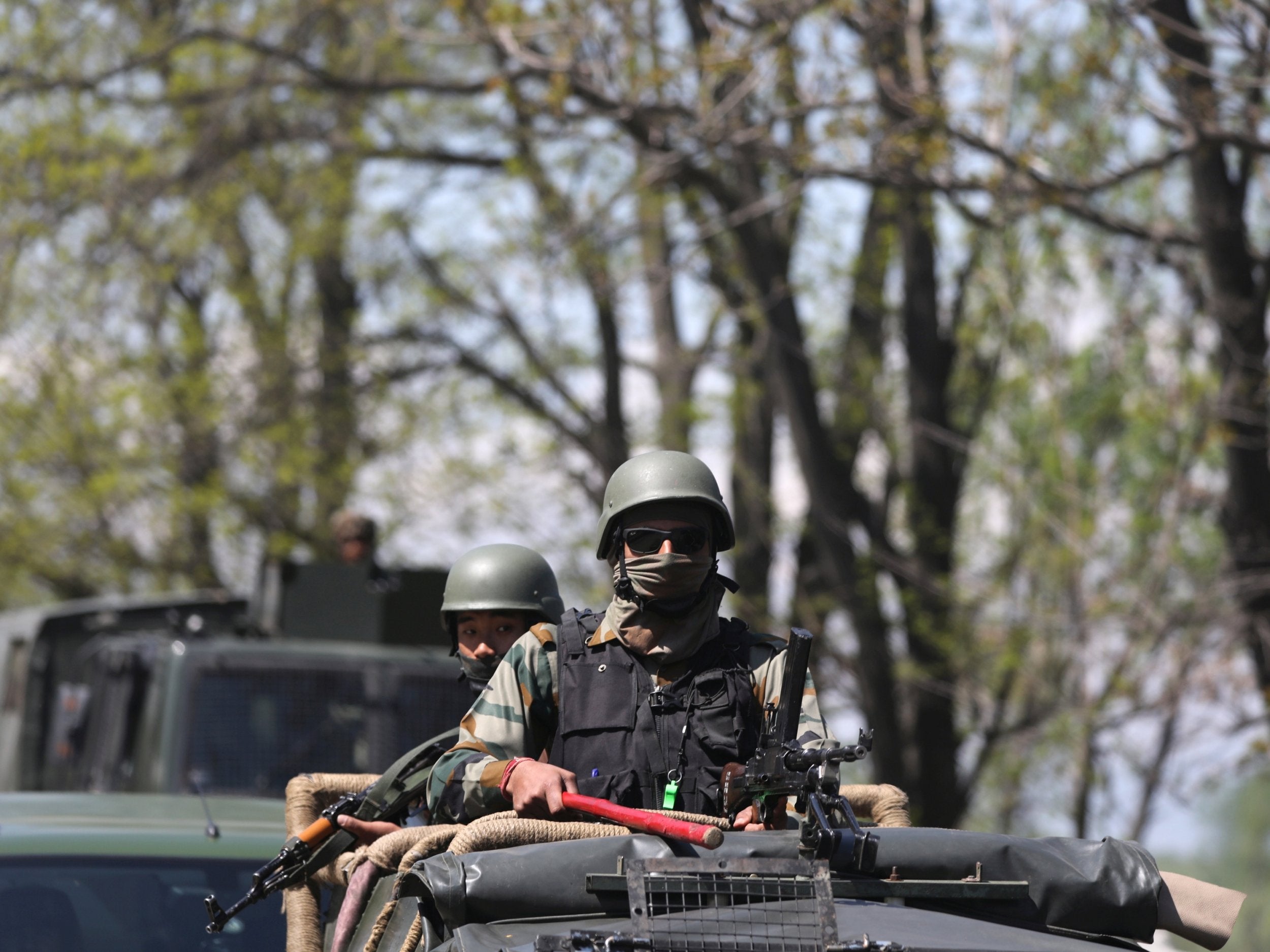Indian security forces kill 29 suspected Maoist rebels days before country goes to polls
This marks the largest Maoist casualty count in a clash in recent years

Your support helps us to tell the story
From reproductive rights to climate change to Big Tech, The Independent is on the ground when the story is developing. Whether it's investigating the financials of Elon Musk's pro-Trump PAC or producing our latest documentary, 'The A Word', which shines a light on the American women fighting for reproductive rights, we know how important it is to parse out the facts from the messaging.
At such a critical moment in US history, we need reporters on the ground. Your donation allows us to keep sending journalists to speak to both sides of the story.
The Independent is trusted by Americans across the entire political spectrum. And unlike many other quality news outlets, we choose not to lock Americans out of our reporting and analysis with paywalls. We believe quality journalism should be available to everyone, paid for by those who can afford it.
Your support makes all the difference.Indian security forces reportedly killed at least 29 suspected Maoist rebels during a gun battle in a forest in Chhattisgarh on Tuesday.
Three security personnel also sustained injuries during a fight in Kanker district of Bastar division of the central Indian state, officials said.
The general election starts in India on 19 April and registered Indians will cast their votes in seven phases till 1 June. Bastar will vote on 19 April and Kanker on 26 April.
The operation was a joint effort by DRG [District Reserve Guards] and BSF [Border Security Force] based on intelligence about senior Maoist leaders present at the site.
The Maoists emerged from a 1967 left-wing rebellion in the Naxalbari village of eastern West Bengal state, inspired by Chinese revolutionary leader Mao Zedong.
The rebels, called ”Maoist” or “Naxal” fighters, have been clashing with the Indian government for more than four decades. The guerilla group claims to defend the rights of indigenous tribes as they attempt to overthrow the government in several states.
On Tuesday, a BSF spokesperson was quoted as saying by The Indian Express: “Based on specific intelligence, a joint operation by teams of BSF and DRG was launched on April 16… While the operation was under progress, the BSF operations party came under fire from CPI (Maoist) cadres, and BSF troops effectively retaliated against them.”
The recovered weapons included rifles and pistols, according to officials.
According to state police officials, this marks the largest Maoist casualty count in a clash in recent years.
Bastar Inspector General Sundarraj P told the media: “The area was searched and bodies of 29 Naxals along with a huge cache of arms and ammunition were recovered from the spot. Three jawans who were injured in the encounter are out of danger and are being airlifted.”
Chhattisgarh Police stated that the death toll could rise as the search operation continues, NEWS18 reported.
Among the 29 Maoists killed, over a dozen were women who were armed with lethal weapons and were attempting to shield the men during the attack by security forces, the outlet said.
Union home minister Amit Shah commended the security forces’ bravery and expressed determination to eradicate Naxalism under prime minister Narendra Modi’s leadership.
“Today, a large number of Naxals have been killed in an operation by security forces in Chhattisgarh. I congratulate all the security personnel who made this operation successful with their bravery, and wish for the speedy recovery of the brave policemen who have been injured,” he said.
Chhattisgarh’s deputy chief minister Vijay Sharma said that the state is ready for a dialogue with Naxals. “To the Naxals, I have always said we are ready for dialogue and discussion. We are ready to speak to one person or a group of persons from the Naxalites. Today, many in Bastar do not have even basic water supply. There is nothing political about it. We will do everything to bring development to Bastar.”
The Indian government had previously referred to the Maoists as the country’s most serious internal security threat.
Join our commenting forum
Join thought-provoking conversations, follow other Independent readers and see their replies
Comments